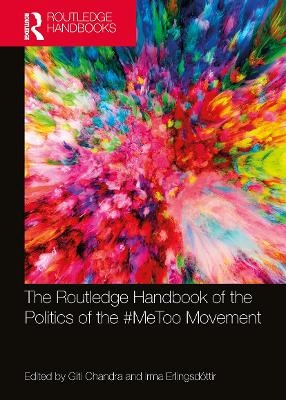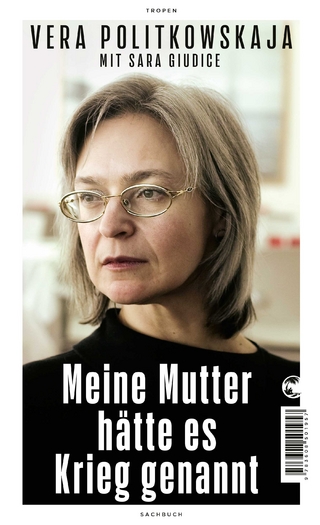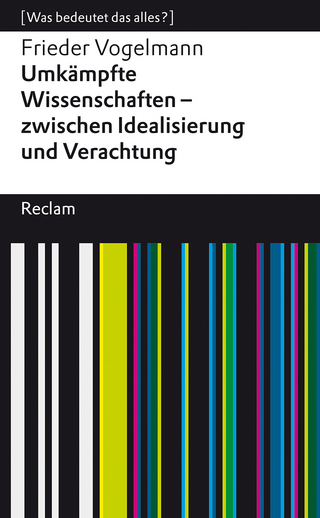
The Routledge Handbook of the Politics of the #MeToo Movement
Routledge (Verlag)
978-0-367-56474-2 (ISBN)
Since the MeToo hashtag went viral in 2017, the movement has burgeoned across social media, moving beyond Twitter and into living rooms and courtrooms. It has spread unevenly across the globe, with some countries and societies more impacted than others, and interacted with existing feminist movements, struggles, and resistances.
This interdisciplinary handbook identifies thematic and theoretical areas that require attention and interrogation, inviting the reader to make connections between the ways in which the #MeToo movement has panned out in different parts of the world, seeing it in the context of the many feminist and gendered struggles already in place, as well as the solidarities with similar movements across countries and cultures.
With contributions from gender experts spanning a wide range of disciplines including political science, history, sociology, law, literature, and philosophy, this groundbreaking book will have contemporary relevance for scholars, feminists, gender researchers, and policy-makers across the globe.
Giti Chandra is Senior Researcher and Lecturer at the UNESCO-affiliated Gender Equality Studies and Training programme (GRÓ-GEST) at the University of Iceland. She has been Associate Professor at the Department of English at St Stephen’s College, Delhi, India, and has taught and been a Fellow at Rutgers University, New Jersey, USA. She has served as Focal Person for the Sexual Harassment Complaints Committee at GRÓ-GEST, Chairperson of the College Complaints Committee Against Sexual Harassment at St Stephen’s College, and as the External Expert on the Sexual Harassment Complaints Committee at the Indian Institute of Mass Communication. Irma Erlingsdóttir is Associate Professor of French Contemporary Literature at the University of Iceland and Director of the UNESCO-affiliated Gender Equality Studies and Training Programme (GRÓ-GEST); RIKK — Institute for Gender, Equality and Difference; and EDDA Center in Contemporary Critical Research at the University of Iceland. She has a PhD from Sorbonne, Paris III, France. She has led several large-scale academic projects in the fields of gender studies, globalisation, contemporary politics, and critical theory. Her current research focuses on transformative politics and contemporary literature, and on the reification of Icelandic gender equality imaginaries.
Foreword Introduction: Rebellion, Revolution, Reformation Section I: Theories 1. Struggle, Solidarity, and Social Change 2. #MeToo as a Revolutionary Cascade 3. Global #MeToo 4. Subject of Desire / Subject of Feminism: Some Notes on the Split Subject(s) of #MeToo 5. #MeToo as a Variegated Phenomenon against Men’s Violences and Violations: Implications for Men and Masculinities 6. #MeToo Beyond Invulnerability: Towards a New Ontological Paradigm 7. The Anonymous Feminist: Agency, Trauma, Personhood, and the #MeToo Movement 8. Silencing Resistance to the Patriarchy 9. #MeToo, African feminisms and the scourge of stereotypes Section II: Contexts 10. Narrating #MeToo: Calling Our Organizations to Action 11. On Tambourines, Hashtags and ReRooting / ReRouting Survivor Voice in Caribbean Feminist Movement Building 12. Moving from Theory to Praxis: Sexual Violence and the #MeToo Movement 13. Wieners, Whiners, Weinsteins and Worse 14. Of Moguls, Monsters, and Men 15. Many New Solutions to Workplace Sexual Harassment in a Post #MeToo Era, But Will They Do The Trick? 16. Being a Disabled Feminist Killjoy in a Feminist Movement 17. Black Women, #MeToo and Resisting Plantation Feminism Section III: Global Perspectives 18. #MeToo: Anger, Denouncement and Hope 19. #MeToo in France, a Feminist Revolution? A Sociohistorical Approach 20. Polish #MeToo: When Concern for Men’s Rights Derails the Women’s Revolution 21. #яНеБоюсьСказать (#IAmNotAfraidToSpeak), #MeToo, and the Russian Media: Public Discourse Around Violence Against Women in Russia 22. #MeToo in Post-Socialist Countries: A Comparative Analysis of Romanian and Chinese Feminist Activism Against Sexual Violence 23. In the Name of #RiceBunny: Legacy, Strategy, and Efficiency of the Chinese #MeToo Movement 24. The #MeToo Movement in Japan: Tentative Steps Towards Transformation 25. ‘Ana Kaman’ – MeToo in the Arab World: A Journalist’s Account 26. #MeToo, the Law, and Anti-Sexual Violence Activism in Kenya 27. Critical Reflections on #MeToo in Contemporary South Africa Through an African Feminist Lens 28. #MeToo Argentina: A Protest Movement in Progress 29. From #MeToo to #NiUnaMenos in Latin America with Focus on the Case of Mexico 30. #Akademiuppropet: Social Media as a Tool for Shaping a Counter-Public Space in Sweden 31. Fighting Structural Inequalites: Feminist Activism and the #MeToo Movement in Iceland
| Erscheinungsdatum | 12.05.2022 |
|---|---|
| Zusatzinfo | 3 Tables, black and white; 1 Line drawings, black and white; 10 Halftones, black and white |
| Verlagsort | London |
| Sprache | englisch |
| Maße | 174 x 246 mm |
| Gewicht | 880 g |
| Themenwelt | Geisteswissenschaften ► Philosophie |
| Sozialwissenschaften ► Politik / Verwaltung ► Politische Systeme | |
| Sozialwissenschaften ► Politik / Verwaltung ► Politische Theorie | |
| Sozialwissenschaften ► Politik / Verwaltung ► Staat / Verwaltung | |
| Sozialwissenschaften ► Soziologie ► Gender Studies | |
| ISBN-10 | 0-367-56474-2 / 0367564742 |
| ISBN-13 | 978-0-367-56474-2 / 9780367564742 |
| Zustand | Neuware |
| Haben Sie eine Frage zum Produkt? |
aus dem Bereich


